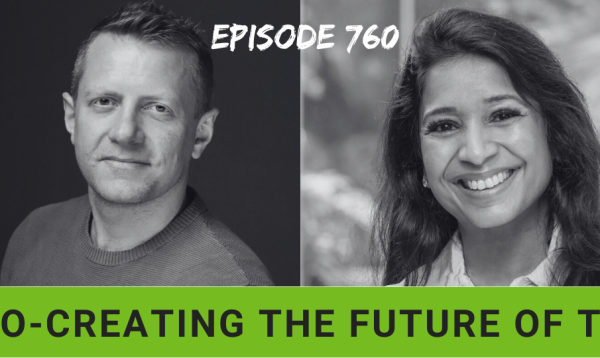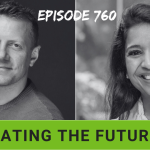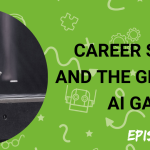AI is starting to drive a profound shift in the workplace. The skills we’ve prioritized for decades are becoming automated, with uniquely human capabilities beginning to emerge as the true differentiators. So, are your hiring and development strategies still focused on what machines can already do, or are you investing in the skills that AI can’t replicate?
The rapid evolution of AI is starting to reshape the skills landscape, but it is already becoming clear that many employers will struggle to adapt. While hard skills have traditionally dominated hiring and development strategies, it’s becoming increasingly clear that soft skills like communication, critical thinking, empathy, and adaptability are the true differentiators in an AI-dominated workplace.
However, most organizations don’t know how to properly define, measure, or develop these soft skills, leaving them vulnerable to skills shortages in the human capabilities that will drive their future success.
So, how can companies identify and nurture the skills that AI can’t replicate?
My guest this week is Dan Haywood, Chief Customer Officer at Go1, one of the world’s leading learning content aggregators. Dan shares valuable insights on how the skills landscape is evolving and why soft skills are becoming increasingly critical as AI handles more technical and repetitive tasks.
In the interview, we discuss:
• [01:56] How the demand for skills is evolving in an AI world
• [03:04] Why education systems aren’t adequately preparing people for modern work
• [08:11] The four key soft skills groups employers need to focus on
• [11:51] The challenges of defining, measuring, and developing soft skills and how to overcome them
• [14:30] How employers can embed soft skills into their learning culture
• [14:30] The importance of executive modeling in skills development
• [16:55] Connecting soft skills development to measurable business outcomes
• [17:02] What the future skills landscape will look like as AI continues to advance
Follow this episode on Apple Podcasts.
Follow this episode on Spotify.
00:00
Matt Alder
AI is starting to drive a profound shift in the workplace. The skills that we’ve prioritized for decades are becoming automated, with uniquely human capabilities beginning to emerge as the true differentiators. So are your hiring and development strategies still focused on what machines can already do, or are you investing in the skills that AI can’t replicate? Support for this podcast comes from Indeed. They’re a brand that I’m sure you all know as the hiring and matching platform where employers can connect with over 580 million job seeker profiles. But did you also know that their front row seat to the global economy gives them a massive data set which you can access for free? This allows you to see the latest information on job postings, salary trends and much more.
00:56
Matt Alder
Or did you know that Indeed’s new AI tools make it easier than ever for you to find and connect with active and passive job seekers? There’s much more to Indeed. Visit Indeed.com. Hi there. Welcome to episode 685 of Recruiting Future with me, Matt Alder. The rapid evolution of AI is starting to reshape the skills landscape, but it’s already becoming clear that many employers are going to struggle to adapt. While hard skills have traditionally dominated hiring and development strategies, it’s becoming increasingly clear that soft skills, communication, critical thinking, empathy and adaptability are the true differentiators in an AI dominated workplace. However, most organizations don’t know how to properly define, measure or develop these soft skills, leaving them vulnerable to skill shortages in the human capabilities that they need to drive their future success.
02:17
Matt Alder
So how can companies identify and nurture the skills that AI can’t replicate? My guest this week is Dan Haywood, Chief customer officer at Go1, one of the world’s leading learning content aggregators. Dan shares valuable insights on how the skills landscape is evolving and why soft skills are becoming increasingly critical as AI starts to take over the more technical and repetitive tasks.
02:45
Matt Alder
Hi Dan and welcome to the podcast.
02:47
Dan Haywood
Thanks Matt. Glad to be here.
02:49
Matt Alder
An absolute pleasure to have you on the show. Please, could you introduce yourself and tell everyone what you do?
02:55
Dan Haywood
Yeah. So my name is Dan Haywood. I have the pleasure of being the Chief customer officer at Go1. Go1 is the world’s content expert with the largest learning ecosystem and we really focus our efforts on powering the pursuit of potential. So essentially I’ve been here for a couple of years now. My background for the past 30 years is in HR started out in L and D, moved across into talent acquisition and all things talent brand talent management for about 15 years and then the last 15 years I’ve been working actually in the SaaS industry in HR tech. So work for LinkedIn and some other learning providers along the way.
03:34
Matt Alder
Awesome. It’s a really interesting background there. Sounds like you’ve been in kind of all different bits of talent.
03:39
Dan Haywood
Yeah, for sure. It’s been a. I kind often describe it as having three careers. I’ve kind of enjoyed each of them but very much. Kind of like L and D kind of nuts and bolts right at the start of my career and then was lucky enough to be in the right place at the right time. When social media, when, sorry job boards arrived the first time way back in the early 90s and then kind of switched over into social media recruiting when that kind of started to really kind of take off in the kind of late 2000, kind of 9, 2010. So, so yeah, it’s been a fantastic journey. It’s also taken me across the world. So I’m originally from the UK but have lived, I’ve kind of moved further west with every role. So now I’m in San Francisco. There’s only Hawaii left.
04:21
Matt Alder
I was going to say there’s not many places left to go.
04:23
Matt Alder
So let’s talk about skills because it’s.
04:26
Matt Alder
Just such an interesting time in the world of work at the moment with everything that’s going on with AI and all of these kind of things. I mean, how is the demand for skills evolving in this sort of AI world that we now seem to be living in?
04:41
Dan Haywood
Yeah, I think it’s a really interesting question and certainly over the last two years I think we’ve all experienced the kind of significant emphasis and focus on AI skills. Maybe two years ago there was a little bit of doom and gloom kind of thinking that AI is going to take over the world. And then it became very clear that what we needed were skills that enable us to work with AI. So one of the things that I’m really noticing when I’m speaking to our customers is the reemergence and the focus on soft skills. So those non technical skills which are more kind of interpersonal, such as communication and collaboration that help people to effectively adapt to kind of the workplace.
05:20
Matt Alder
I mean, I think that’s really interesting and it’s something that’s consistently coming across in lots of the conversations that I’m having, whether they’re called softer skills or durable skills. Or whatever it might be. Want to talk a little bit more about that in the context of the workplace in a second. Before we do though, do you think that the education systems that we currently have are properly preparing people for this new world of work where different skills are needed than perhaps we’ve taught people in the past?
05:49
Dan Haywood
So I think that kind of the short answer is no. And I think we’re definitely seeing that with the impact of kind of remote working, the acceleration of that through kind of the COVID era. And I think kind of it’s definitely a conversation that I think we’re starting to see a lot more of in the educational space around kind of different innovative approaches that schools can take. I think there is definitely a lag and I think a lot of employers are seeing kind of those entry level employees with that skills gap. But you know, some of the things that certainly here in California, where I live, my son’s in middle school and they do a class called Enrichment. And essentially it’s, it’s actually focused on anything that the child is interested in.
06:30
Dan Haywood
It’s only, it’s a semester, but it’s really designed to focus them on like more of a project based learning approach. So focus on teamwork. They have to kind of innovate and ideate on kind of what it is that the project that they are going to lead, it could be anything and then there’s some loose structure around it. But it really helps kind of facilitate that real world collaboration that we see. So I think kind of, you know, where we’re seeing in the educational space, people lean into this. It really is kind of embracing that kind of more experiential kind of learning. Whether that’s kind of role playing or simulations, kind of as a part of the curriculum, thinking about kind of that project based learning that I mentioned. So kind of creating that simulation of kind of real work collaboration.
07:15
Dan Haywood
And certainly I know I have a couple of older kids too who have been through, you know, into the workplace. I can see how hard it is when they’re, you know, they’re faced with challenge or kind of like a difference of opinion for the first time in the workplace, because that hasn’t been something that my older kids have gone through their university experience. And then finally, yeah, I definitely think that I’m seeing a shift now from an education perspective where schools are starting to think about how can they teach students to work alongside AI while strengthening interpersonal skills. I think two years ago it was AI is the be all and end all.
07:49
Dan Haywood
And now there’s a real clear understanding that the real differentiator here is those interpersonal or soft skills or critical thinking skills that can accompany AI that’s doing all the heavy lifting and the technical, more repeatable tasks.
08:05
Matt Alder
That’s really interesting. I mean, tell us a little bit more about that. How does that work in context? How are people thinking about AI? The kind of relation, I suppose, between humans and machines in that kind of context?
08:16
Dan Haywood
Yeah, well, I mean, I think as we’ve all seen, AI, I think our expectations for AI and where we are right now have somewhat been moderated. My opinion, I think kind of certainly how myself and my teams and a lot of our customers are using AI is really focusing on those technical, more repetitive tasks. And I think the reality is that there are still some things that AI cannot easily replicate and so, such as kind of creativity, emotional intelligence, interpersonal communication. It does a good job of mimicking. But I think there’s a really, there’s a clear differentiation I think right now in terms of kind of like the efficiency and the effort that you’re getting from AI to address kind of a lot of the kind of consolid. You know, certainly in my world, it’s a lot of consolidation.
09:02
Dan Haywood
It’s not taking action recommendations and those sorts of things. And then the ability to be able to communicate that to clients, partners, other project team members. And so I think that we’re starting to see a little bit of that differentiation. But it also means that, you know, the use of AI effectively means that, you know, our employees have to be proficient in terms of that kind of collaboration, the kind of the human machine collaboration. So a lot of effort on the prompting and how to leverage the tool for maximum efficiency as opposed to, I think maybe, yeah, with the hype two or three years ago. Yeah, this is a tool that’s gonna take over.
09:38
Dan Haywood
And so certainly there’s kind of digital literacy, prompt literacy, and you know, a lot of emphasis in terms of that kind of prompt techniques and how we essentially role play with AI large language models to get the most out of them and continuous learning because, you know, the tools that we have, the AI tools are continuously progressing. But the flip side of that is there are still, you know, a lot of skills that even those, I think the CEO of Nvidia, you know, the large AI chip manufacturer, said that he would definitely recommend that his children don’t become programmers. There’s, you know, his focus would be on them at university Focusing on the soft skills because that’s the one area that even he realizes that the AI is not going to be able to easily replicate or match.
10:24
Matt Alder
Yeah, I think it’s really interesting what you said there about it being able to mimic creativity but not actually be creative. And I think that’s, yeah, that’s kind of a really core difference. And coming back to the workplace and soft skills, traditionally lots of employees have not been really good at understanding these or kind of even defining them. So how do employers need to think about soft skills? You know, amongst their, amongst the talent they have, the talent that they’re bringing into the organization. How do you actually define them?
10:55
Dan Haywood
Yeah, that’s, I mean, yeah, I think that’s a really great question. I think it definitely is easier to identify the technical skills gaps and I think we all recognize that. But I definitely, you know, interaction with our customers and obviously we’re, we have a. Over 100,000 pieces of content within our platform from about, from over 200 content providers that our customers leverage. So we get to see a lot of the data behind the scenes. And if I think about kind of the, you know, what that’s telling me and then conversations around most common skills gap, typically it’s showing up as kind of four groups of skill sets. So the first is around communications. So there’s clearly, yeah, there’s clearly an opportunity from, you know, face to face or human to human interactions.
11:36
Dan Haywood
There’s, there’s an opportunity there because, you know, for the past five years a lot of us have been remote. We’re starting to re. Enter that workplace environment. So I think that’s an area where particularly for kind of new enroll or new to the workforce, that’s a common gap in terms of like, okay, so how can we help kind of inject some of that kind of in person interactions that maybe digital communication has augmented or replaced today? The second group would be around kind of critical thinking and problem solving and yeah, and I’m pretty sure this is, yeah, these themes have been consistent all the way through, but I think the need has been enhanced somewhat by, you know, the human experience of the last kind of four to five years. Then kind of emotional intelligence, kind of an empathy.
12:16
Dan Haywood
And again, I think kind of the reality there is remote work and digital interactions have really limited our opportunity for that nuanced kind of social learning. You know, I work remotely. I’ve been remote since March 2020. And when I have the opportunity to kind of, to meet people in person. It’s, it’s amazing how much more connected, how much more productive, etc. That you know, that I feel and we film certainly feels like far more productive. And I think part of that is just all of those non verbal cues, the ability to connect at work, but in a non work setting, whereas in zoom, we’re kind of on a meeting and then we’re off the meeting and then we’re back on a meeting again. So we’re not gaining that kind of empathetic understanding of other people’s organizations.
13:00
Dan Haywood
And then finally, and this is one that I think is maybe somewhat contentious, but it’s really along theme of resilience and adaptability. And I think that there’s a real understanding of, or a far greater understanding now of people’s mental health and the ability, you know, the difference between kind of pressure and stress and the impact that has on, on individuals. And certainly as the workplace continues to change, so a lot of my colleagues are now back in, you know, I’ve gone back, you know, different organizations, either part time or full time, there’s a, that’s a shift that they’ve had to adapt. And so certainly some professionals that I think are like newer in their careers who maybe have grown up and they’ve spent the last four years and their only experience of the world has been in remote working. That’s.
13:47
Dan Haywood
Yeah, that can sometimes struggle with that. And so thinking about, okay, how can we provide those resources or that context for learning around resilience and adaptability is something that is another key thing.
14:03
Matt Alder
So when it comes to technical skills, I think that, you know, most employers have thought fairly clear about how they can measure those, how they can assess those, how they can, you know, train people, how they can upskill people in those kind of areas with soft skills. Some of them are kind of almost like human attributes in a way. And it’s from that perspective, it’s like, how do you measure them? And can you upskill or train people in aspects of, you know, of some of these, some of these soft skills?
14:36
Dan Haywood
Yes. Yeah, it’s definitely, it’s definitely a different, I think definitely a very intentional approach is needed. And I think the reality is that I think you can, you can certainly think about how we think about these soft skills in the context of all the learn that we do. So one of the things, one of the trends that we see, obviously as I mentioned, we’re a content aggregator, so we have a lot of compliance training focus, but we will have skills development and leadership development. And what we’ve started to see over the last couple of years is a shift of soft skills attributes and modules being included in those compliance training. So everybody globally has to do some sort of compliance training. And so certainly a lot of the providers now recognize this opportunity and this skills gap.
15:22
Dan Haywood
And so it’s almost like by stealth, introducing soft skills like adaptability into problem solving, into compliance training helps to kind of enhance that. They’re not necessarily calling it out as that, but it’s an area where we can continue to kind of focus and grow. I think what we’re also seeing is the use of, to your point, this kind of human learning or human attributes. I think the types of learning that we can do, whether in person or remote or hybrid, we can lean into that a little bit more. So things like simulations, real world scenarios, role playing. Certainly if I think back 30 years, I spent a lot of my time when I was an L and D practitioner doing a lot of role plays, whether it’s negotiation or sales skills or those sorts of things.
16:01
Dan Haywood
So I think, yeah, I mean, you could do that online. We can do that hybrid or in person. So introducing those real world scenarios and simulations. And then finally there’s definitely a trend to microlearning and gamification. I think kind of people respond, every learner has a different style. But what we’re seeing as an overarching trend is, you know, shorter, faster bursts of microlearning that can be included in the flow of work and gamification. Certainly kind of the newer generations kind of really respond to that sense of kind of fun and engagement and potential competition in terms of those learnings. So I think all of that kind of some of the kind of tactics.
16:44
Dan Haywood
But I do think it really comes down to organizations understanding their kind of the skills landscape in their organization, some of those soft skills and where the gaps may be, and thinking about building that into their leadership development and their culture of learning, if you will, at different points.
17:03
Matt Alder
What would your advice be to employers on being able to do that? Because I know it’s something that lots of people are struggling with at the moment to actually kind of map out and understand the skills that they have in their business.
17:15
Dan Haywood
Yeah, so I think, and this is, I think the response here is it’s fairly consistent with other skill sets, but I think kind of it’s not specific just to kind of soft skills, but I definitely think it starts with intention. So I think kind of thinking about the learning culture in your Organization, do you have one? Do you want to create one? What does that mean? Thinking about the entire kind of ecosystem of learning. So whether that’s mentorship coaching, continuous learning programs, how you’re providing access in general from a learning perspective, and then very much what I’ve seen best practice is executive modeling. So ensuring that if we’re saying that soft skills are important and we want employees to focus and develop on that, then our executives have to exhibit that. So whether that’s empathy, whether that’s communication skills, etc.
18:06
Dan Haywood
I think it’s important for leaders to be seen to be demonstrating that and to be talking about that. Because at every step, one of the biggest blockers to kind of L and D programs, I think is the inconsistency between kind of what L and D is saying and what leaders are doing. So I think that’s a key step. And then quite tactically, kind of the next level down where I’ve seen, you know, benefits here is thinking about how do we embed soft skills into KPIs. So are we thinking about, are we measuring, for example, in our performance reviews, kind of communication, collaboration, adaptability, those skills that we say that are important and that we’re putting L and D resources and focus behind, are they connected from a talent management, performance management perspective?
18:52
Dan Haywood
And then, you know, hardest of all, really from an L and D perspective, I think is connecting that then to ROI and thinking about, okay, within the context of my organization, how am I going to be connecting? Like a thin red line. I often talk about the other, these soft skills that we’re looking to improve and business performance. And so how can we measure that? And that might be through the connection or attribution to customer experience, like CSAT type scores, team collaboration, maybe you measure that within your employee satisfaction, esat, innovation, those sorts of things. So thinking about the ways that your organization currently measures and assesses itself and then what are the ways that we can think about attributing we can maybe baseline improvements in some of those soft skills.
19:40
Matt Alder
And as a final question, what does.
19:42
Matt Alder
The future look like?
19:43
Matt Alder
How’s the skills landscape going to develop further?
19:47
Dan Haywood
That is a great question. I think, I think AI is clearly not going away. And so I think kind of as we see kind of greater advances in, on the, on AI and greater efficiencies on the technical, more repeatable, I think there’s going to be almost like a, a double down in terms of on non technical skills. I think we’ll all become far more literate and able to maximize and leverage kind of AI. So I do think that my perspective is that soft skills are going to become even more of a differentiator for employees because I think the ability to navigate work environments hybrid in person, foster those relationships, drive innovation, has always been key and will continue to do so. But with greater technical tools that are able to kind of display some of those repeatable, scalable tasks.
20:35
Dan Haywood
I think kind of the differentiator really is going to be more of those interpersonal and kind of cognitive skills.
20:42
Matt Alder
Dan, thank you very much for talking to me.
20:44
Dan Haywood
Thank you so much. Great to chat.
20:47
Matt Alder
My thanks to Dan. You can follow this podcast on Apple Podcasts on Spotify or wherever you get your podcasts. You can find and search all the past episodes at recruitingfuture.com on that site. You can also subscribe to our weekly newsletter, Recruiting Future Feast, and get the inside track on everything that’s coming up on the show. Thanks very much for listening. I’ll be back next time and I hope you’ll join me.








